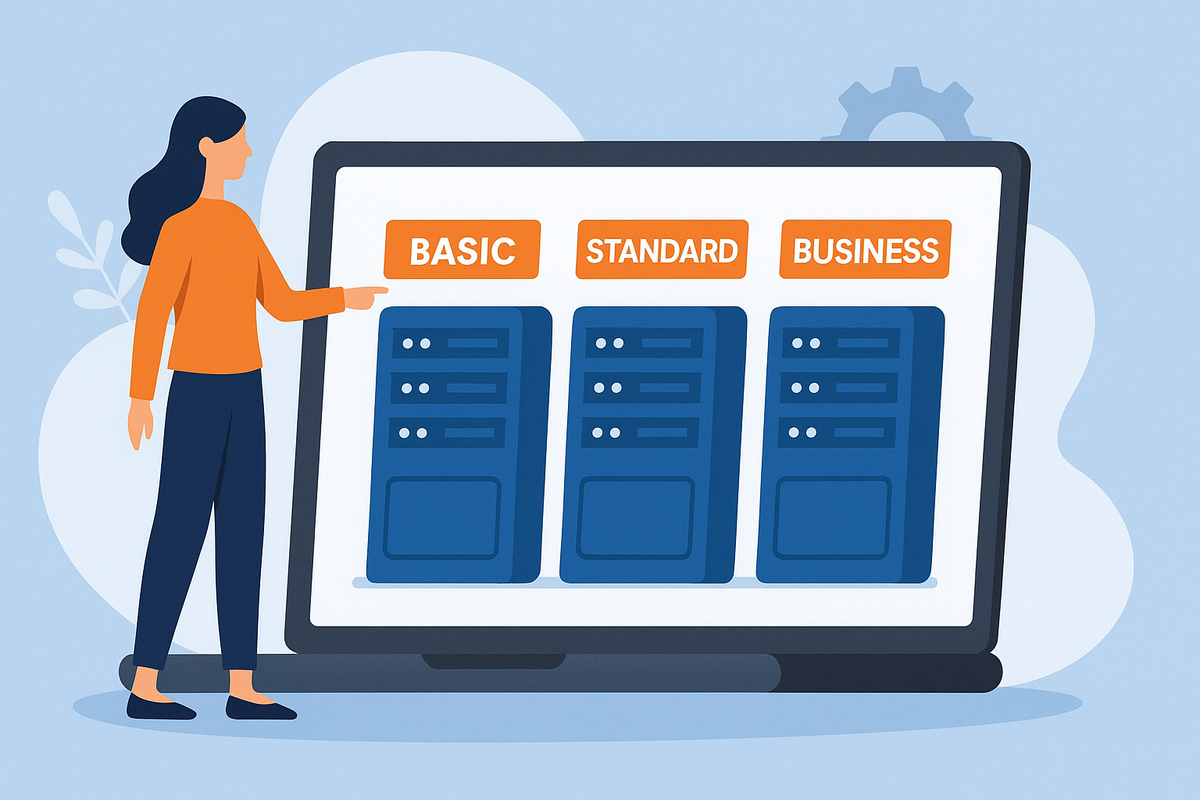How to Choose the Right Hosting Plan for Your Needs

Starting a website is a bit like moving into a new home. You’ve got your vision — maybe a blog, an online store, or a portfolio — and now you need a place for it to live. That’s where hosting comes in.
But here’s the catch: when you start looking at hosting providers, you’re bombarded with options. Shared hosting, VPS, cloud, dedicated, managed WordPress… it feels like an endless menu with no clear “right” answer. And if you’re new, it can be overwhelming.
The truth is, the right hosting plan isn’t about choosing the fanciest or most expensive option. It’s about matching the hosting to your actual needs. Let’s break it down in plain English.
Start Small If You’re Just Beginning
If this is your first website — maybe a blog or a simple business site — you probably don’t need much power.
Shared hosting is usually the entry point. It’s affordable (often just a few dollars a month) and gives you everything you need to get online. Think of it like renting an apartment: you share resources with neighbors, but it’s cost-effective and simple to manage.
The main downside? If one of your neighbors hogs resources, your site might slow down. But for small projects, that’s usually not a dealbreaker.
When to Upgrade: Growing Sites Need More Space
As your site grows, you may start to feel the limits of shared hosting. Maybe your blog is getting thousands of visitors a day, or your store is adding more products and customers. That’s when you look at the next step:
- VPS hosting (Virtual Private Server): You’re still sharing a server, but you get dedicated slices of resources. It’s like having your own townhouse instead of an apartment. More privacy, more reliability, and more room to grow.
- Cloud hosting: Flexible and scalable. Your site runs on multiple servers in the cloud, so if one is busy, another picks up the slack. Great for sites with unpredictable traffic.
These options cost more, but they also give you more control and stability.
For Serious Projects: Dedicated or Managed Hosting
If your website is your business, not just a side project, you may eventually outgrow VPS or cloud hosting. That’s when people consider dedicated hosting — where you rent an entire physical server for yourself. It’s powerful, secure, and customizable, but also expensive and often more than most people need.
Another option is managed WordPress hosting (like Kinsta or WP Engine). Here, you don’t just get hosting — you get a team managing performance, security, and updates for you. It’s pricier than shared hosting, but the peace of mind can be worth it if you’re focused on running your business, not tweaking settings.
Factors to Consider Before Choosing
Instead of looking at fancy features, ask yourself a few honest questions:
- How big is my site now? A small blog doesn’t need the same resources as a store with thousands of products.
- How much do I expect to grow in the next year? If you’re aiming for rapid growth, pick a plan that can scale with you.
- How comfortable am I with tech? Some plans give you more control but also more responsibility. Managed hosting is great if you’d rather not worry.
- What’s my budget? Don’t overspend on features you don’t need yet. You can always upgrade later.
A Human Way to See It
Think of hosting like places to live:
- Shared hosting: An apartment. Affordable, cozy, and easy — but shared.
- VPS hosting: A townhouse. More control, more privacy, still manageable.
- Cloud hosting: A flexible rental. Expand or shrink as needed.
- Dedicated hosting: Owning a big house. Expensive, but fully yours.
- Managed hosting: A serviced villa. Someone else handles the maintenance while you just enjoy the space.
Which one feels right depends on where you are in your journey.
Choosing the right hosting plan doesn’t have to be complicated. The best plan is the one that meets your needs today and gives you room to grow tomorrow.
Start small if you’re just beginning. Upgrade as your site grows. And if your website is mission-critical, consider managed or premium options that keep everything running smoothly without adding stress to your life.
Remember: hosting isn’t forever. You can always move, upgrade, or switch providers as your project evolves. What matters most is getting started and finding a home for your website that feels right for now.